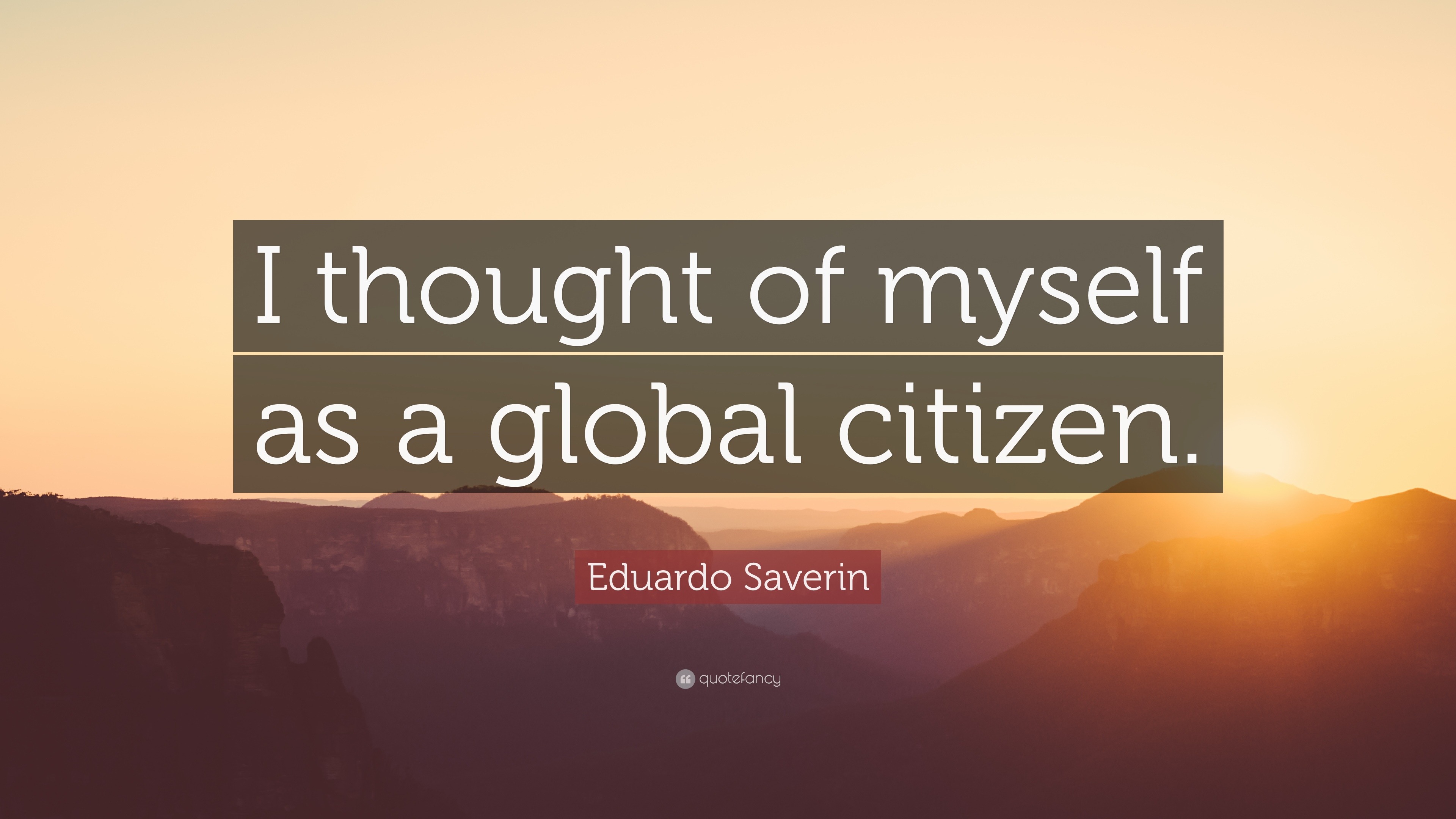Eduardo Saverin, a name synonymous with entrepreneurial brilliance, co-founded one of the most influential platforms in modern history—Facebook. Born on March 19, 1982, in São Paulo, Brazil, Saverin's journey from a young immigrant to a tech billionaire is nothing short of inspiring. His role as the company's first CFO and his strategic financial decisions were pivotal in Facebook's early growth. Today, Saverin is not only recognized for his contributions to the tech world but also as a savvy investor who has diversified his portfolio across various industries. Despite stepping away from the limelight, his legacy continues to influence aspiring entrepreneurs worldwide. This article delves into the life, achievements, and lesser-known facets of Eduardo Saverin, offering a comprehensive look at the man behind the success story.
From his early days at Harvard University to his pivotal role in Facebook's inception, Eduardo Saverin's journey has been marked by resilience and innovation. As a co-founder of Facebook, Saverin played a crucial role in shaping the platform's financial backbone, ensuring its sustainability during its nascent stages. His business acumen and ability to navigate complex financial landscapes were instrumental in the company's rapid rise. However, his story is not without challenges, including the infamous legal battle with Mark Zuckerberg, which became a defining chapter in his career.
Today, Eduardo Saverin is more than just a Facebook co-founder; he is a global investor with stakes in numerous startups and tech ventures. His strategic investments in Southeast Asia's booming tech ecosystem have further cemented his reputation as a forward-thinking entrepreneur. Beyond his professional achievements, Saverin's decision to renounce his U.S. citizenship and become a resident of Singapore has sparked widespread discussion. This article explores his life, career, and the impact he continues to have on the global business landscape.
Read also:Unleashing The Power Of Originality Why Being Original Matters
Table of Contents
- Biography of Eduardo Saverin: From Humble Beginnings to Tech Mogul
- Personal Details and Bio Data of Eduardo Saverin
- What Role Did Eduardo Saverin Play in Facebook's Early Success?
- How Did the Legal Battle with Mark Zuckerberg Shape Eduardo Saverin's Career?
- Eduardo Saverin's Investment Strategies: What Drives His Success?
- Why Did Eduardo Saverin Renounce His U.S. Citizenship?
- What Are Eduardo Saverin's Contributions to Philanthropy?
- What Does the Future Hold for Eduardo Saverin?
Biography of Eduardo Saverin: From Humble Beginnings to Tech Mogul
Eduardo Saverin's story is one of ambition, perseverance, and transformation. Born in São Paulo, Brazil, Saverin grew up in a family with a strong business background. His father, Roberto Saverin, was a successful businessman, and his mother, Paula Saverin, was a psychologist. This environment instilled in him a deep appreciation for both business and human behavior. At the age of 13, Eduardo moved to the United States, where he attended Gulliver Preparatory School in Miami. His academic excellence earned him a spot at Harvard University, where he pursued a degree in economics.
During his time at Harvard, Saverin's entrepreneurial spirit began to shine. He co-founded a college review website called "Joboozle," which aimed to connect students with job opportunities. This early venture laid the groundwork for his future endeavors. However, it was his friendship with Mark Zuckerberg that would change the course of his life. Together, they conceptualized and launched Facebook in 2004, a platform that would revolutionize social networking. Saverin's role as the company's first CFO was instrumental in securing initial funding and managing financial operations.
Despite his success with Facebook, Saverin's journey was not without challenges. The legal dispute with Zuckerberg over equity stakes in the company became a turning point in his career. While the lawsuit was eventually settled, it marked a shift in his professional trajectory. Today, Saverin is known not only for his role in Facebook's creation but also for his strategic investments in startups and tech companies. His ability to adapt and thrive in different environments has made him a respected figure in the global business community.
Personal Details and Bio Data of Eduardo Saverin
| Full Name | Eduardo Luiz Saverin |
|---|---|
| Date of Birth | March 19, 1982 |
| Place of Birth | São Paulo, Brazil |
| Nationality | Brazilian (formerly American) |
| Education | Harvard University (B.A. in Economics) |
| Occupation | Entrepreneur, Investor |
| Net Worth | Approximately $12 billion (2023) |
What Role Did Eduardo Saverin Play in Facebook's Early Success?
Eduardo Saverin's contributions to Facebook's early success cannot be overstated. As the company's first Chief Financial Officer (CFO), Saverin was responsible for managing the platform's financial operations during its critical formative years. His expertise in economics and business strategy enabled him to secure initial funding, establish financial systems, and ensure the company's sustainability. One of his most significant achievements was opening a bank account for Facebook and funding its initial advertising campaigns, which helped the platform gain traction among college students.
Beyond his financial responsibilities, Saverin played a pivotal role in shaping Facebook's early business model. He was instrumental in developing strategies to monetize the platform, laying the groundwork for its future revenue streams. His ability to balance financial discipline with innovative thinking was crucial in Facebook's rapid growth. Saverin's leadership and vision helped transform a dorm-room project into a global phenomenon, attracting millions of users within its first year of operation.
However, Saverin's tenure at Facebook was not without controversy. The legal dispute with Mark Zuckerberg over equity stakes in the company became a defining moment in his career. While the lawsuit was eventually settled, it marked the beginning of a new chapter for Saverin. Despite the challenges, his contributions to Facebook's early success remain a testament to his entrepreneurial spirit and business acumen.
Read also:Unlocking The Power Of Ed Telegram Channel Your Ultimate Guide
Key Contributions of Eduardo Saverin to Facebook
- Secured initial funding and managed financial operations.
- Developed strategies to monetize the platform.
- Opened Facebook's first bank account and funded advertising campaigns.
- Played a key role in shaping the company's early business model.
- Helped attract millions of users within the platform's first year.
How Did the Legal Battle with Mark Zuckerberg Shape Eduardo Saverin's Career?
The legal battle between Eduardo Saverin and Mark Zuckerberg is one of the most well-documented chapters in Facebook's history. The dispute arose over Saverin's equity stake in the company, which he claimed was unfairly diluted during Facebook's early funding rounds. According to Saverin, Zuckerberg and other executives excluded him from key decisions and marginalized his role in the company. The lawsuit, filed in 2009, sought to restore Saverin's original stake and address the alleged breaches of fiduciary duty.
The legal battle had significant implications for both Saverin and Facebook. For Saverin, it marked a turning point in his career, as he transitioned from being a co-founder of Facebook to pursuing independent ventures. The lawsuit was eventually settled out of court, with Saverin retaining a 5% stake in the company. While the settlement provided him with substantial financial resources, it also distanced him from Facebook's day-to-day operations. Despite the challenges, Saverin emerged from the dispute with a renewed focus on his entrepreneurial ambitions.
Today, Saverin's legal battle with Zuckerberg is often cited as a cautionary tale about the importance of clear agreements and communication in business partnerships. It also highlights the complexities of navigating equity stakes in fast-growing startups. For Saverin, the experience served as a catalyst for his transition into the world of investing, where he has since achieved remarkable success.
Lessons Learned from the Legal Battle
- Importance of clear agreements in business partnerships.
- Need for transparency in equity distribution.
- Impact of legal disputes on personal and professional relationships.
- Value of resilience and adaptability in overcoming challenges.
Eduardo Saverin's Investment Strategies: What Drives His Success?
Eduardo Saverin's success as an investor can be attributed to his strategic approach and keen understanding of market dynamics. After stepping away from Facebook, Saverin turned his attention to the world of venture capital, where he has made significant contributions to the growth of numerous startups. His investment portfolio spans a wide range of industries, including technology, e-commerce, and fintech. Saverin's ability to identify promising ventures and provide them with the resources they need to succeed has earned him a reputation as a savvy and forward-thinking investor.
One of Saverin's most notable investment strategies is his focus on emerging markets, particularly in Southeast Asia. He has invested in companies like Grab, a ride-hailing and delivery platform, and Razer, a gaming hardware company. These investments reflect his belief in the region's potential for growth and innovation. Saverin's approach is characterized by a long-term vision, as he seeks to support companies that can create lasting impact. His investments are not just financial but also strategic, as he often provides mentorship and guidance to the founders he backs.
Another key aspect of Saverin's investment philosophy is his emphasis on collaboration and partnerships. He believes in the power of networks and often collaborates with other investors to maximize the potential of his ventures. This collaborative approach has enabled him to build a diverse and robust portfolio, positioning him as a key player in the global investment landscape. Saverin's success as an investor is a testament to his ability to adapt, innovate, and seize opportunities in a rapidly changing world.
Notable Investments by Eduardo Saverin
- Grab: A leading ride-hailing and delivery platform in Southeast Asia.
- Razer: A global gaming hardware and software company.
- 99: A Brazilian ride-hailing service acquired by Didi Chuxing.
- Quora: A popular question-and-answer platform.
- Asana: A project management tool for teams.
Why Did Eduardo Saverin Renounce His U.S. Citizenship?
Eduardo Saverin's decision to renounce his U.S. citizenship in 2011 sparked widespread debate and speculation. The move came shortly before Facebook's initial public offering (IPO), leading many to believe that it was motivated by tax considerations. As a U.S. citizen, Saverin would have been subject to significant capital gains taxes on his Facebook shares. By renouncing his citizenship and becoming a resident of Singapore, he was able to minimize his tax liabilities and optimize his financial position.
While the tax implications were undoubtedly a factor, Saverin has stated that his decision was driven by personal and professional reasons as well. Singapore's business-friendly environment and strategic location in Asia made it an attractive base for his investment activities. The country's robust infrastructure, political stability, and pro-business policies aligned with Saverin's long-term goals. Additionally, Saverin has expressed his desire to focus on opportunities in Southeast Asia, a region he believes holds immense potential for growth and innovation.
Despite the controversy surrounding his decision, Saverin's move highlights the complexities of global citizenship and the challenges of balancing personal interests with public perception. It also underscores the importance of strategic planning in managing financial and professional obligations. For Saverin, renouncing his U.S. citizenship was a calculated decision that has allowed him to pursue his entrepreneurial ambitions with greater flexibility and freedom.
Implications of Renouncing U.S. Citizenship
- Reduced tax liabilities on global income and assets.
- Access to Singapore's business-friendly environment.
- Strategic positioning in Southeast Asia's growing markets.
- Controversy and public scrutiny over the decision.
What Are Eduardo Saverin's Contributions to Philanthropy?
While Eduardo Saverin is primarily known for his entrepreneurial and investment ventures, he has also


